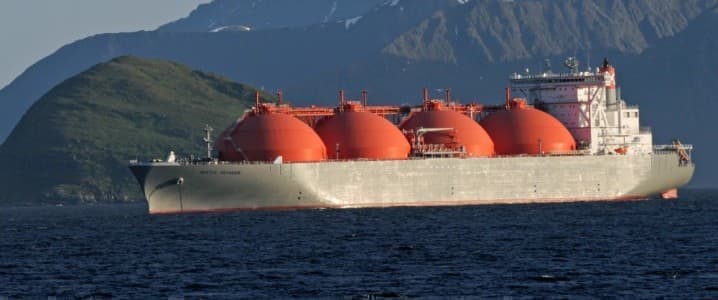As the U.S. tariff threats have prompted Canada to seek alternative export markets for its oil and gas, even the province of Quebec in eastern Canada—which ditched an LNG export plan four years ago—is entertaining the idea once again.
While an LNG project on Canada’s West Coast is close to startup and more LNG projects on the Pacific Coast are being supported by major LNG traders, the East Coast on the Atlantic is receiving little attention.
This may be rightly so, according to one advocacy group, Investors for Paris Compliance, which said in a report this week that there isn’t a business case for LNG exports via Canada’s East Coast.
The U.S. tariff threat was a wake-up call for Canadian policymakers that the federal and provincial governments may have too hastily scrapped over the past decade Alberta-to-coast pipeline projects that could have diversified Canada’s oil and gas exports.
Energy East, which would have delivered oil from Alberta east to Ontario and Quebec shores, was scrapped by the provincial and federal governments, and so was the GNL Quebec project, initially proposed in 2015 to transport via a 750 km (466-mile) pipeline natural gas from the west to Saguenay in Quebec for LNG exports to international markets. GNL Quebec, however, was ditched in 2021. First, the province of Quebec refused to authorize it, and then the federal government refused to authorize it the following year—on environmental grounds.
Related: Suriname Votes for President Who Will Oversee Newly-Found Oil Wealth
Earlier this year, amid soured relations with Canada’s top trade partner, the United States, the Quebec government signaled it would be open to reviving the Quebec LNG project to help Canada reduce its dependence on the U.S. market for its oil and gas exports.
But the idea of potentially resurrecting the LNG export project on the East Coast could be dead in the water because the business rationale just isn’t there, according to Investors for Paris Compliance.
The group’s report highlighted various reasons why shipping LNG from Canada’s East Coast would not be profitable due to structural shifts in global LNG markets, while the Quebec LNG project’s costs would now be double compared to the estimates made in 2018. Back then, the cost estimate was US$12.2 billion (C$16.9 billion), and was likely underestimated. Applying the overrun factors observed with LNG Canada Phase 1 and Coastal Gaslink to GNL Quebec’s estimate, the project’s actual cost could be up to twice the original estimate, or upwards of US$23.8 billion (C$33 billion), Investors for Paris Compliance’s report says.
Moreover, the key market for LNG shipping from Canada’s Atlantic coast – Europe – has been reducing demand for gas, also due to the energy crisis earlier this decade, while Asia has easier access to LNG than from Canada’s East Coast. The wave of new LNG projects out of the U.S. and Qatar in the next three years would also dampen the business case for a costly project in the eastern shores of Canada, according to the advocacy group.
“While there is a need to diversify and strengthen our economy, this needs to be based on sound business opportunities,” reads Investors for Paris Compliance’s report.
“For savvy investors, improving East-West electricity integration, investing in critical minerals, and developing high-speed passenger rail are economic opportunities worth pursuing.”
To boost Canadian oil and gas exports to markets other than the U.S., large energy companies seek investment and business opportunities on the West Coast.
For example, crude flows from the expanded Trans Mountain pipeline have materially shifted since the relations between the United States and Canada soured under U.S. President Donald Trump. China has now become the biggest buyer of Canadian crude shipped via the Trans Mountain Expansion pipeline, according to data from Kpler cited by Reuters.
In the gas business, the Shell-led LNG Canada at Kitimat, British Columbia, has received its first import cargo of liquefied gas that it will use for equipment testing as the facility nears completion, scheduled for later this year.
In a boost to another proposed LNG project in Canada’s northwest, TotalEnergies this week signed an agreement to buy 2 million tons per annum (Mtpa) of liquefied natural gas from the proposed Ksi Lisims LNG project over a 20-year period, subject to final investment decision. The French energy major has also taken a 5% equity stake in Western LNG, the project’s developer and future operator. The acquisition grants TotalEnergies the option to increase its stake in Western LNG and/or take a direct stake in the plant up to approximately 10% when the final investment decision is made.
By Tsvetana Paraskova for Oilprice.com
More Top Reads From Oilprice.com
